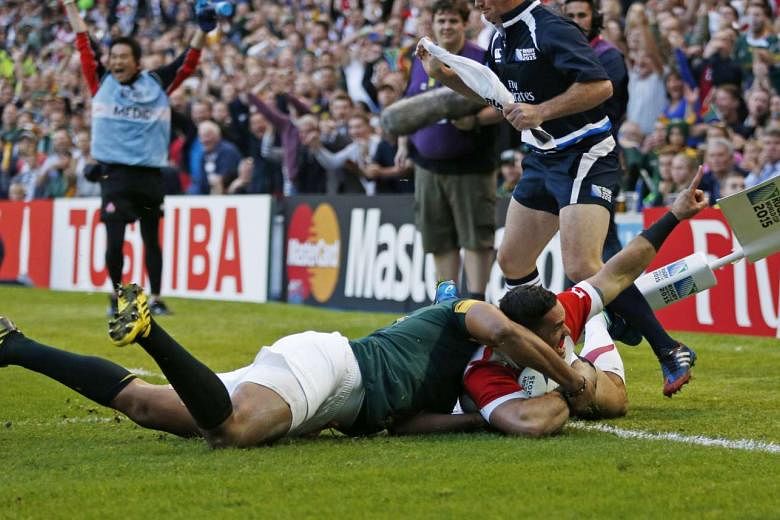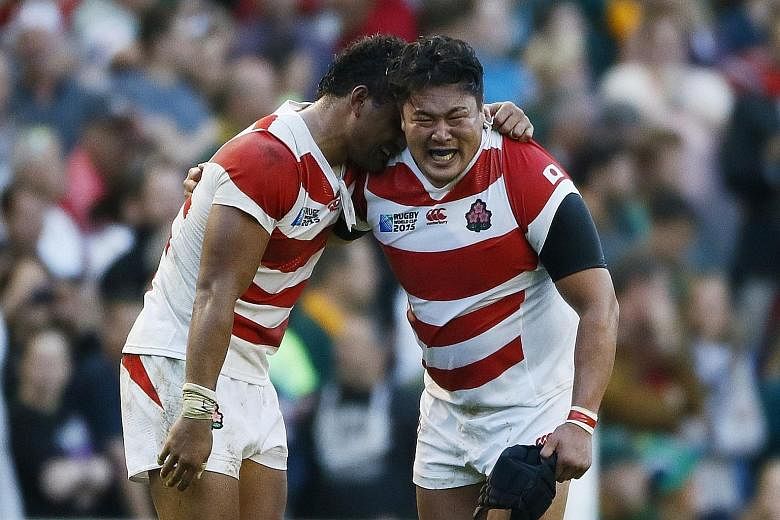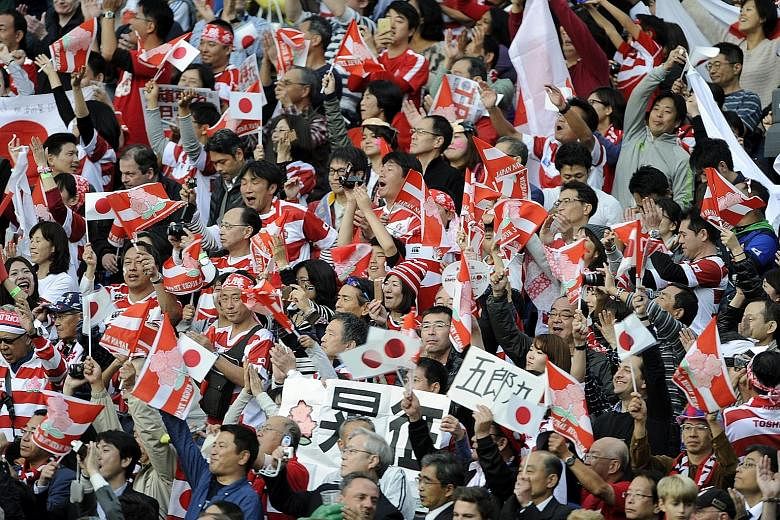BRIGHTON (England) • Japan coach Eddie Jones believes his team can cause further chaos at the Rugby World Cup after they pulled off the biggest shock in Test history by defeating South Africa 34-32 on Saturday.
Next up for Japan are Scotland on Wednesday and Jones said the victory over the Springboks would be for nothing if they failed to build on it and reach the quarter-finals for the first time.
"We made a splash today but we want to make a real dent in the tournament," said Jones. "History has changed for Japanese rugby. There will be little kids at home now who maybe wanted to be baseball or soccer players. It can change the sport. The best athletes might be more attracted to play rugby."
Shell-shocked South Africa coach Heyneke Meyer said: "We represent a proud nation and I apologise to the nation. We have got to take it on the chin and get back on track."
Captain Jean de Villiers added: "The senior players have a massive role to play. Each player must now step up and make himself counted."
The Brave Blossoms became instant national heroes, none more so than Ayumu Goromaru. The full-back scored 24 points with a try, five penalties and two conversions.
Although ranked 13th in the world, no one gave Japan a hope of winning. Their only previous entry into World Cup notoriety had been for the record defeat - crushed 145-17 by New Zealand in 1995 - while South Africa had twice lifted the trophy, in 1995 and 2007.
Moreover, Japan had won only one World Cup game (against Zimbabwe in 1991) before, making the match-up one between the team with the worst record against the team with the best winning record.
As such, the bookmakers made Japan 80-1 underdogs. Yet they defied the odds against the most experienced Springboks side ever, with 851 caps among the starting XV.
Jones hailed the "more than brave performance", which was epitomised by Karne Hesketh's killer try in the dying seconds.
Twice in the final minutes, trailing by three points, Japan had the chance to secure a famous draw with a simple penalty. But twice they rejected the safer option, choosing to go for glory instead. Four minutes into injury time they finally achieved it, as replacement wing Hesketh dived into the corner.
Clive Woodward, former England player and coach, afterwards called the refusals to kick for an easy three points and take a draw "the biggest calls in the history of the World Cup" which resulted in "the best game ever in World Cup history".
The celebrations were as special as the action as grown men sank to their knees and wept, joining thousands of Japanese fans shedding tears of joy inside the Brighton Community Stadium, barely believing what had unfolded in front of them.
Yet it was a result that Jones and his captain, Michael Leitch, had been plotting ever since the draw was made almost three years ago.
"We wanted to make it a phase game and keep the ball in play," revealed Jones, who took Australia to the final against Woodward's England in 2003 and was part of the Springboks' staff during their 2007 triumph. "We thought a high ball-in-play time would give us a better chance of winning."
Japan knew they could not beat the Springboks' power game and so they used their speed to move the big Springbok oaks around, tiring them out.
Jones' tactical input aside, much of Japan's recent progress has been credited to their naturalised players. Leitch, Hesketh and influential lock Michael Broadhurst all hail from New Zealand. But for a 31-man squad that boasts 11 foreign-born players, there were plenty of local talents on show too.
Japan's scrum-half and man of the match Fumiaki Tanaka - the World Cup's smallest player at 166cm and 71kg - dictated the tempo of their game. Goromaru, Harumichi Tatekawa, the captain in the midfield, and Hitoshi Ono at second row, were also brilliant.
No matter what happens next, they have confounded those who argue that rugby's elite nations will forever dominate the alleged minnows of Tier Two.
THE GUARDIAN, THE TIMES, LONDON, REUTERS, AGENCE FRANCE-PRESSE



